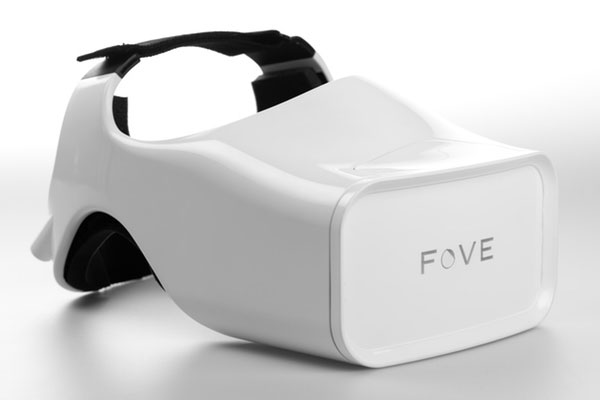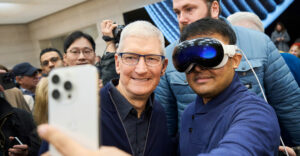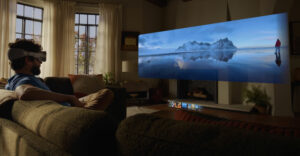Fove is the first virtual reality headset to feature eye-tracking — meaning, among other things, that characters you view on screen can look right back at you. So far, close to 500 people have pledged nearly US$200,000 to bring the Fove VR headset to fruition.
Just a day into its 45-day Kickstarter campaign, the Fove appears certain to reach its $250,000 goal. Backers can secure a Fove and a developer’s kit by pledging at least $375 to the campaign — the kits offered for $349 have sold out.
The Fove has a 100-degree FOV (field of view), low-latency head tracking, and highly responsive eye tracking that is accurate within 1/20th of a degree. It’s the eye tracking and the ability to aim with the eyes that are separating the Fove from a growing pack of VR headsets preparing to come to market, according to Yuka Kojima, Fove cofounder and CEO.
“Fove enables users to truly immerse themselves into virtual reality worlds by allowing instant and precise user interface control using sight,” she told TechNewsWorld. “What’s more, Fove allows human connections with VR characters through genuine eye contact.”
Catching Your Eye
Fove’s eye-tracking technology employs infrared lasers that bounce light off the wearer’s retinas to determine how the eyes are angled. The company’s proprietary algorithm, aka “Foveated Rendering,” measures depth of field focus by calculating the parallax between the wearer’s eyes.
“Fove tracks a user’s gaze and calculates where in 3D space a user is looking,” Kojima said. “This enables the graphics engine to adjust focus and allocate rendering resources accordingly, giving the user the most natural VR experience.”
Along with giving wearers more control, the Fove’s eye-tracking “drastically reduces” the motion sickness that has plagued many consumers who use headsets that rely only on head-tracking, Kojima pointed out.
“Fove also allows for greater emotional exchange with in-game characters, often leading consumers to perceive the characters as real,” she said.
Although consumers likely are interested as well, “the Kickstarter campaign is for the delivery of developer kits, for developers to create fantastic VR content that consumers will love once we ship Fove for general release,” Kojima emphasized.
Beyond Gaming
Kojima already has had a storied career heading up development of several Sony games — for the PSP, PlayStation 3, PlayStation Vita and PlayStation Move. However the company she now heads — also named “Fove,” — foresees the eye-tracking VR headset powering new experiences in a variety of other sectors, such as healthcare, social networking and education.
Virtual reality is the future, said Roger Entner, principal analyst at Recon Analytics.
The technology will spread to other sectors after it establishes a firm foundation in gaming, but the Fove’s eye-tracking capabilities might be used only in niche applications, according to Entner.
Developers may find novel ways to leverage the Fove’s eye-tracking, but for many of VR’s wider-use applications, head-tracking may be all that’s needed.
“Nobody has been able to do the eye-tracking right yet,” Entner told TechNewsWorld. “There ‘s some early eyeball tracking in the Samsung galaxy 6 — and that works, more or less. It’s a bit more than less, but certainly not perfect. So it’s very cool to have technology that works.”
If Fove has unlocked the secret to highly accurate eye-tracking, the VR headset could be poised for success, he suggested.
Gaming is the sector with the lowest-hanging fruit, Entner observed, and gamers who believe in a particular technological advance typically are willing to spend exorbitant amounts of money to support it.





















































The 1st of June GloveOne, another AM azing VR gadget, will be in Kickstarter. The haptic glove by NeuroDigital Technologies will make possible to touch and feel Virtual Reality as never before. From rain drops falling on your hand to the touch of the strings of a virtual guitar as you play your favorite song.
http://www.gloveonevr.com